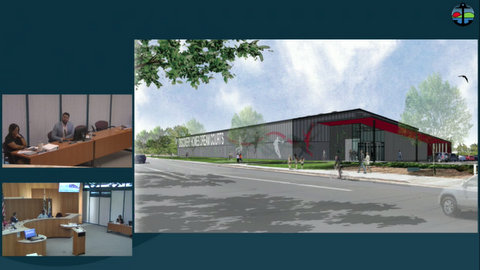
21 Jan Pittsburg Council Approves Development Bond Program

(Image courtesy of the city of Pittsburg)
By Aly Brown
Bay City News
The Pittsburg City Council this week unanimously approved a bond program aimed at financing development.
However, the creation of any special taxes to fund said bond would come at a later date.
“This is just the first step to allow this to be a tool in our toolbox to assist with infrastructure development going forward,” said Jordan Davis, Pittsburg’s director of community and economic development.
The council’s approval authorized the use of the California Municipal Finance Authority’s Bond Opportunities for Land Development and gave the CMFA the greenlight to accept applications from property owners and levy special taxes.
Davis explained that the CMFA, which is a joint powers authority composed of numerous public entities — including the city of Pittsburg — has the authority to issue bonds to meet its mission of supporting economic development, job creation and social programs.
“It’s no secret that residential development, which we have plenty of here in Pittsburg, is challenging to this city, as well as to other municipalities, to provide the infrastructure and facilities to accommodate that growth,” Davis said. “BOLD is designed to help these municipalities and developers finance infrastructure projects and the development fees that are associated with those projects.”
A city staff report on the item stated that future residential development will require the city to provide “extensive infrastructure and other additional public facilities to accommodate growth.”
Staff estimates that over the next 20 years, Pittsburg could construct more than 8,000 residential units, along with over 5 million square feet of commercial and industrial space.
Davis said that with BOLD, bonds are issued by a community facilities district formed by the CMFA. Under the Mello-Roos Community Facilities Act of 1982, CFDs are a type of special tax district formed when property owners within a geographic area agree to impose a tax on property in order to fund infrastructure improvements or services.
The formation of the CFD would require establishment of annual special tax rates, which Davis said would be computed and brought before the council in a resolution at a later date — though they generally do not exceed 2% of the market value of developed land.
“Tonight, we are just looking at enrolling the city in the BOLD program, but we are not creating any CFDs, nor are we required to create any CFDs in the future,” he explained.
The reason the city decided to go with BOLD over other similar bond programs, Davis said, is because the CMFA shares a portion of the collected fees with local nonprofits.
Copyright © 2024 Bay City News, Inc. All rights reserved. Republication, rebroadcast or redistribution without the express written consent of Bay City News, Inc. is prohibited. Bay City News is a 24/7 news service covering the greater Bay Area.





No Comments